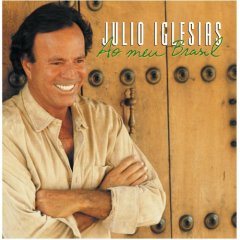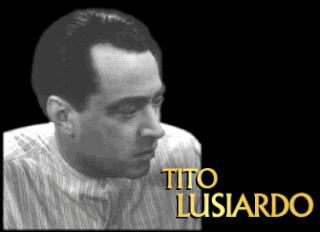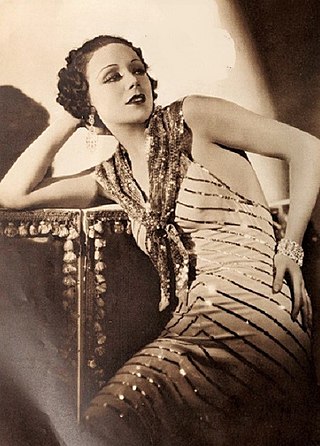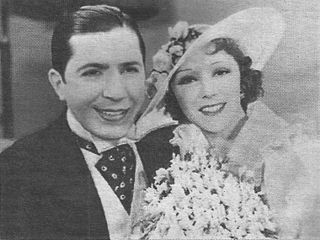External links
| | This article related to an Argentine film of the 1960s is a stub. You can help Wikipedia by expanding it. |
It is proposed that this article be deleted because of the following concern:
If you can address this concern by improving, copyediting, sourcing, renaming, or merging the page, please edit this page and do so. You may remove this message if you improve the article or otherwise object to deletion for any reason. Although not required, you are encouraged to explain why you object to the deletion, either in your edit summary or on the talk page. If this template is removed, do not replace it . The article may be deleted if this message remains in place for seven days, i.e., after 16:05, 22 December 2022 (UTC). Find sources: "El Día que me quieras" 1969 film – news · newspapers · books · scholar · JSTOR Nominator: Please consider notifying the author/project: {{ subst:proposed deletion notify |El Día que me quieras (1969 film)|concern=Appears to fail [[WP:NFILM]] as no reviews found in a BEFORE. Perma-stub since 2007}} ~~~~ |
| El Día que me quieras | |
|---|---|
Release date |
|
| Country | Argentina |
| Language | Spanish |
El Día que me quieras is a 1969 Argentine film.

Carlos Gardel was a French-born Argentine singer, songwriter, composer and actor, and the most prominent figure in the history of tango. He was one of the most influential interpreters of world popular music in the first half of the 20th century. Gardel is the most famous popular tango singer of all time and is recognized throughout the world. He was notable for his baritone voice and the dramatic phrasing of his lyrics. Together with lyricist and long-time collaborator Alfredo Le Pera, Gardel wrote several classic tangos.

Ao Meu Brasil is an album by Julio Iglesias released on December 18, 2001 by Sony International. Iglesias sings all the songs in Portuguese.
Alfredo Le Pera was an Argentine journalist, dramatist, and lyricist, best known for his brief but fruitful collaboration with the renowned tango singer Carlos Gardel. He died in a plane accident with Gardel when he was at the height of his career.

Segundo Romance is the tenth studio album by Mexican singer Luis Miguel, released on 30 August 1994 through WEA Latina. Like Miguel's 1991 album Romance, Segundo Romance comprises cover versions of boleros written between 1934 and 1993. It was produced by Miguel with Juan Carlos Calderón, Kiko Cibrian and Armando Manzanero and recorded in early 1994 at the Record Plant in Los Angeles.

Eduardo Mignogna was an Argentinian film director and screenwriter.

Pierre Bruno Hugo Fontana, otherwise known as Hugo del Carril, was an Argentine film actor, film director and tango singer of the classic era.

Tito Lusiardo was an iconic Argentine film actor and tango singer of the classic era.
El día que me quieras is an Argentine tango with music by Carlos Gardel and lyrics by Alfredo Le Pera. It is considered one of the most popular songs of the 20th century and one of the best Latin songs of all time. Originally featured in the 1935 film of the same name, sung by Gardel himself, it became a heavily recorded tango standard, even by artists outside of the realm of tango. It has subsequently been covered by various artists such as Luis Miguel, Julio Iglesias, Michael Bolton Roberto Carlos, Raphael de España and Shlomo Idov who translated the song to Hebrew. The song was inducted into the Latin Grammy Hall of Fame in 2001. "El día que me quieras" was honored at the 2014 La Musa Awards as "La Canción de Todos los Tiempos". It was among the tango standards selected by Plácido Domingo for his 1981 album Plácido Domingo Sings Tangos. In addition to Domingo, the song has been covered by operatic tenors including José Carreras, Juan Diego Florez, Christian Ketter, and Alfredo Kraus.

Guillermo Battaglia was a prolific Argentine film actor of the classic era of Argentine cinema.
El Salmón is a studio album by Andrés Calamaro.

Rosita Moreno was a Spanish film actress who worked in cinema in Hollywood, Argentina, Mexico, and in her native Spain.
El día que me quieras may refer to:
The Latin Brothers is a Colombian salsa group originally led by Julio Ernesto Estrada Rincón, known as 'Fruko'. It was created by Antonio Fuentes of the label Discos Fuentes as a response to the rival salsa groups of the day. Original lead singer Piper Pimienta along with Joe Arroyo and Julio Ernesto Estrada Rincón 'Fruko' carried the launch of the group's success in 1974. It was billed as a sister act to Fruko y sus Tesos on the Discos Fuentes label.

El día que me quieras is a 1935 musical film which starred the legendary tango singer Carlos Gardel, Spanish actress Rosita Moreno and the tango singer Tito Lusiardo. The film was directed by John Reinhardt, produced by Robert R. Snody and written by the tango lyricist Alfredo Le Pera.

Kany Garcia is the third studio album of Latin Grammy winner, singer-songwriter Kany García. It was released on August 14, 2013 and produced by Kany García, Julio Reyes Copello and Paul Forat Sony BMG. The album's first single "Que Te Vaya Mal" was nominated for Record of the Year at the 2012 Latin Grammy Awards. The album was nominated for "Best Latin Pop Album" at the 2013 Grammy Awards.

Alguien que me quiera is an Argentine serie tv produced by Pol-ka and broadcast by El Trece from February 1 to November 15, 2010.

"Disparo al Corazón" is a song recorded by Puerto Rican singer Ricky Martin, released on January 13, 2015 as the second single from his Grammy Award–winning Spanish-language album, A Quien Quiera Escuchar (2015). It was written by Ricky Martin, Pedro Capó, Yoel Henriquez and Rafael Esparza Ruiz, and produced by Julio Reyes Copello.
Puchito Records was Cuba's second independent record label. It was founded in 1954 during the mambo and cha-cha-chá explosion of the 1950s. Many of its recordings, produced by its founder Jesús Gorís (1921–2006), became instant hits. Cuban music styles represented in its discography include danzón, güajira, son cubano, son montuno, cha-cha-chá, guaracha, guaguancó, Cuban bolero, Cuban rumba, mambo, new flamenco, and Zarzuela. Other styles include farruca, merengue (Dominican), Ranchera (Mexican), nueva canción (Mexican) ... styles from Spain include cuplé, pasodoble, and flamenco. The ensembles range from studio orchestras to jazz combos to big bands to charangas.
Pasión Española is a 2008 album by Plácido Domingo with Miguel Roa and the Madrid Community Orchestra from Deutsche Grammophon which won a Latin Grammy Award.